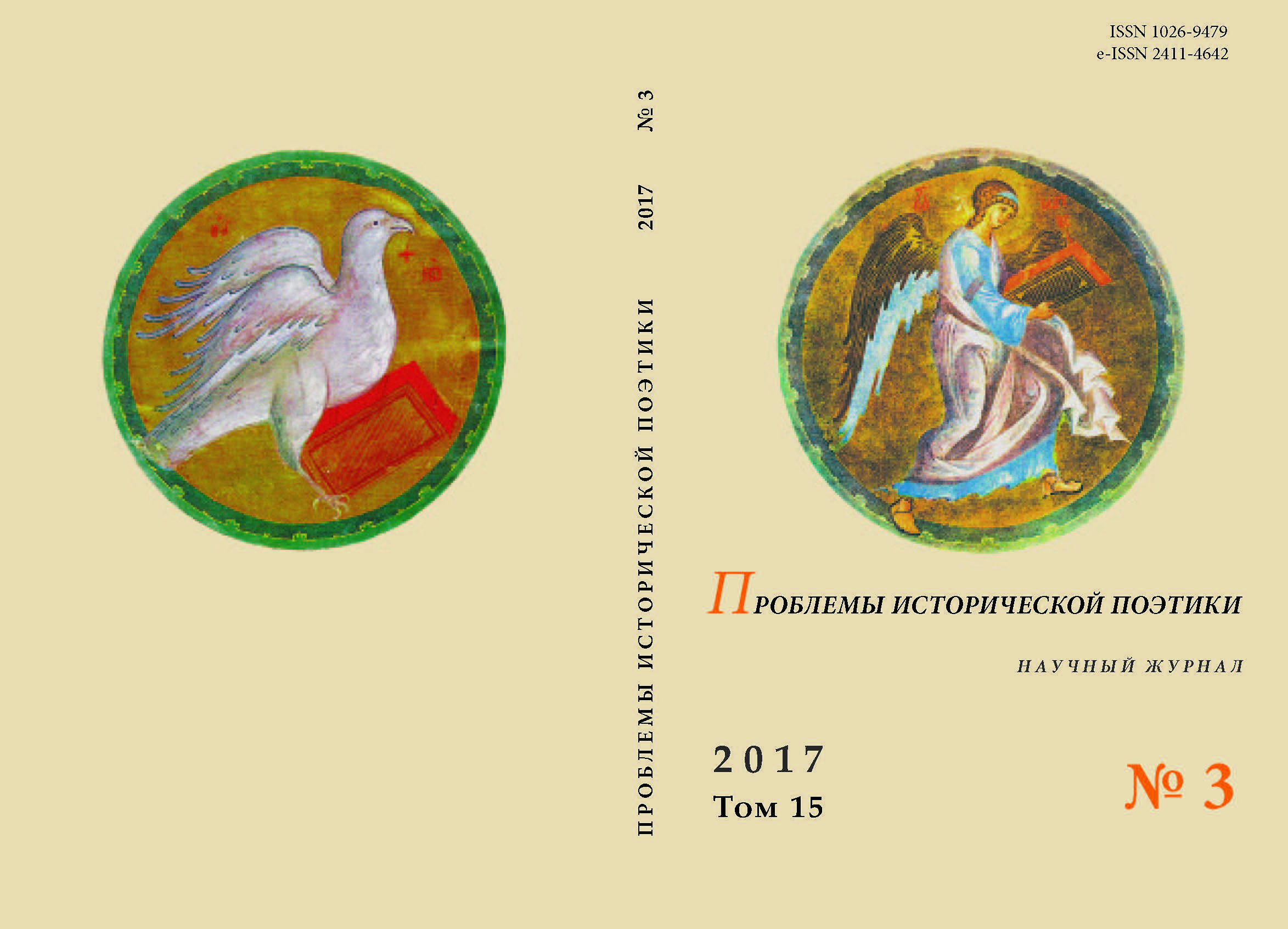ЕВАНГЕЛЬСКОЕ ПРЕДСТАВЛЕНИЕ О СЛОВЕ И РУССКАЯ ПОЭЗИЯ
AN EVANGELICAL CONCEPTION OF THE WORD AND RUSSIAN POETRY
Author(s): Vyacheslav KoshelevSubject(s): Language and Literature Studies, Literary Texts, Studies of Literature, Russian Literature, Philology
Published by: Петрозаводский государственный университет
Keywords: Human word; a word and a deed; fairy tale, Divine word; G. R. Derzhavin; V. A. Zhukovsky; N. V. Gogol; K. S. Aksakov; sublime poetry
Summary/Abstract: The article envisages various interpretations of a poetic word and of the possibilities of the impact of a writer’s word on people appeared in some statements of A. S. Pushkin, V. A. Zhukovsky, G. R. Derzhavin, N. V. Gogol, K. S. Aksakov. It is revealing that these interpretations derived from the idea of the Divine Word that opens the Gospel of John, and at the same time drew on old traditions coming from the idea of a word in verbal folklore. The poetic word assumes importance only if it becomes uncommon and oriented at unexpected verbal associations: not until the word is said in an unconventional way, it becomes sublime poetry. It is this Evangelical (and fantastic) rule (“It would be good if the same word were said in another way”) allowed the poetic word to become a commonly used principle of literary evolution.
Journal: Проблемы исторической поэтики
- Issue Year: 15/2017
- Issue No: 3
- Page Range: 7-20
- Page Count: 13
- Language: English, Russian

